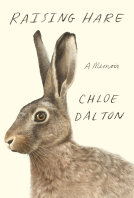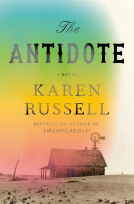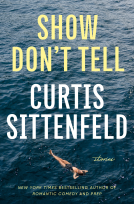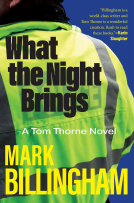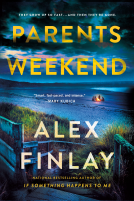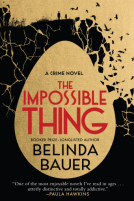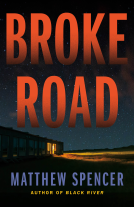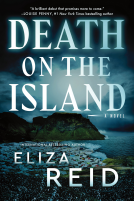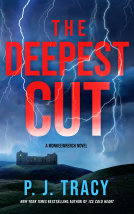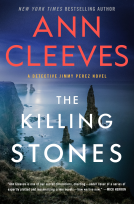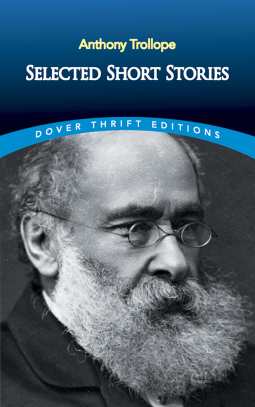
Selected Short Stories
by Anthony Trollope
This title was previously available on NetGalley and is now archived.
Send NetGalley books directly to your Kindle or Kindle app
1
To read on a Kindle or Kindle app, please add kindle@netgalley.com as an approved email address to receive files in your Amazon account. Click here for step-by-step instructions.
2
Also find your Kindle email address within your Amazon account, and enter it here.
Pub Date Jan 18 2017 | Archive Date Mar 07 2017
Description
These six stories originally appeared in periodicals, and Trollope may have drawn upon his experiences as an editor in writing "Mary Gresley," concerning a young woman with literary ambitions, and "The Spotted Dog," chronicling a harried scholar's attempts to work in peace. Christmas stories include "The Mistletoe Bough," a tale of a broken engagement, and "Not If I Know It," relating a family falling-out. Courtship and class distinctions receive wry treatments in "The Parson's Daughter of Oxney Colne," in which a well-to-do suitor receives his comeuppance, and "The Two Heroines of Plumplington," a tale of romance stymied by parental snobbery.
Available Editions
| EDITION | Paperback |
| ISBN | 9780486811192 |
| PRICE | $5.00 (USD) |
| PAGES | 192 |
Featured Reviews
 Reviewer 255544
Reviewer 255544
I received a copy of this collection from the publisher via NetGalley.
I am a big Anthony Trollope fan, but not particularly fond of short stories (as a genre).
"The Mistletoe Bough": I have read this before in a Trollope Christmas anthology. I would describe it as "slight". It concerns the embarrassment suffered by Elizabeth when the man (a ward of her father) to whom she was briefly engaged comes to stay. The circumstances surrounding the breaking off of the engagement were murky. On the other hand, I enjoyed Elizabeth's brother who was determined to study eight hours a day, but never got further than drawing up revision timetables - so true to life!
"The Parson's Daughter of Oxney Colne": The story of Patience (the parson's daughter) and her relationship with Captain Broughton. Thoughtful and very subtle on the nature of love, selfishness and motivation. Similar to the tone of a Trollope novel; excellent.
"The Spotted Dog": Julius Mackenzie, born a gentleman, but now living in penniless drunkenness with his wife and four children, is employed to compile the index to a scholarly work. The narrator of the story, who refers to himself as "we" throughout (apart from one short section, oddly) is the publisher who reluctantly arranges this. Trollope does a good job of revealing the man's character through the narration - he is cautious and ultimately concerned with self-preservation, but tries to do good. The form of the narration causes the story to be rather relentless in its tone, with none of Trollope's usual gentle humour. Indeed, it is a rather sad cautionary tale about the evils of gin. The Doctor, the author of the scholarly work, emerges as truly good and sympathetic. Compelling, although I wouldn't choose to read it again.
"Mary Greasley": Another rather slight story; basically an old man's hymn of praise to a young woman he was in love with (in a paternal sort of way, he assures us). Again narrated as "we did this" etc, and again from the perspective of a publisher, although the characterization of the narrator was softer. He criticized others for encouraging Mary's literary ambitions, but was unable to stop himself from doing likewise. I'm not sure whether Trollope saw it like this, but this story is really about the expectations a Victorian woman could or should have of life, marriage, a career. Enjoyable enough, although not a lot really happens.
"The Two Heroines of Plumplington": Set parallel to and in the region of the events in Trollope's novel "The Warden", this is the story of two young women, who wish to marry men of whom their fathers disapprove. Each father is rich and each proposed son-in-law has only his wages. This is a typical Trollope scenario, but the story was disappointing due to the characterizations. The fathers were reasonably well-drawn characters, the daughters less so (and Emily was insipid) and the two young men were underwritten to the extent that is was hard really to root for them. I think it was meant to be gently humorous, but I found it dull.
"Not If I Know It": Very short. A feel-good Christmas story of forgiveness.
 Joseph S, Reviewer
Joseph S, Reviewer
Selected Short Stories by Anthony Trollope is a collection of six stories that have previously appeared in periodicals. Trollope was a prolific Victorian Era writer with forty-seven novels and dozens of short stories to his credit. I have been meaning to read his work for quite a while. a friend with a PhD in English sings his praises and got me interested. I started with high hopes but quickly found myself entering the doldrums. It appears that my limited appreciation of English literature is contained in the Interwar Era. The writing is and portrayal of the characters, however, is excellent.
In previous reviews, I have highly recommended Dover Publications as an introduction to an author and his work. The selections cover a broad range of the writer’s work giving the reader a well-rounded experience. The price is always affordable so the reader does not feel like he is making a large financial commitment to a collected works. That same value is carried on in this collection. The formatting is well done and as always the introduction to the writer is informative and also provides an introduction to the stories.
This is a collection that for no concrete reason, other than personal preference, this falls outside of my reading interest. However, I would not have known this without reading through this collection. I have reviewed several Dover Thrift Editions and found them all well constructed and worthwhile. Had I paid the $5.00 for this edition, I would not have been dissatisfied. In fact, I’ll probably pick it up and try it again. Dover delivers on its promises. I recommend this book to anyone looking for an introduction to Victorian Literature.
 Pat M, Reviewer
Pat M, Reviewer
3.5★
I’m aware that Trollope is considered a major writer of the 19th century, but he’s not for me, at least his short stories aren’t. I’m very fond of short stories, generally, though.
I suspect much of it is style. I’m not a fan of Jane Austen (horrors, I know!), and although she lived a good couple of generations before Trollope, her writing was the first thing I thought of. Then I thought of Dickens, but Dickens tells a better tale. I still like Dickens.
These stories all look at everyday people doing everyday things, quite different things, and he describes them masterfully, with affection and good humour. There’s a girl upon whom an older man (Trollope?) is sweet but must maintain his uncle-like manner. There are two girls with fathers who don’t approve of their young men. And more.
He describes a prospective employer’s view of a desperately poor, highly educated man who had been recommended for a literary job.
There is a long passage about the shape, size and colour (red) of his nose, which indicates his love of the drink.
“Below his coat we could only see his broken boots and the soiled legs of his trousers, which had reached that age which in trousers defies description.”
But of course, that was an excellent description. From the same story, about the publican of the Spotted Dog, which the fellow with questionable trousers frequented:
“Mr Grimes was a man about forty, - fully ten years the senior of his wife, - with a clear grey eye, and a mouth and chin from which we surmised that he would be competent to clear the Spotted Dog of unruly visitors after twelve o’clock, whenever it might be his wish to do so.”
Just the sort of chap you'd want on your side in an altercation. With physical descriptions, Trollope is wonderful. About one of the aforementioned fathers, declaring to his daughter that her would-be suitor was actually not suitable:
“And he had raised his forehead on high till it looked as though one continuous poker descended from the crown of his head passing down through his entire body.”
The poker analogy carried through this long story, including it rusting from his mouth, but it wasn’t enough to keep me interested. I didn’t really care what happened to the daughter or her lover.
I did enjoy many turns of phrase. This, at a Christmas dinner:
“The beef and pudding were ponderous, but with due efforts they were overcome and disappeared.”
Perhaps I need to try a novel, as he’s such a well-loved novelist, and I’m obviously out of step.
For those who love Austen, I'm sure they will enjoy these stories and other Trollope works, too. I recommend you have a look.
Thanks to NetGalley and Dover Publications for a preview copy of this publication.
 Susan D, Reviewer
Susan D, Reviewer
While I do prefer,Trollope in the longer form, the novel, these short stories offer briefer vignettes of 19th c. life with emphasis on the activities and travails of the women he follows so closely and some of the men in their lives, be they fathers, brothers, espoused, affianced, friends, tradesmen, tutors, etc. It struck me while reading that Trollope seems quite progressive for his time in allotting the places and roles he has to, for the most part, quite strong women. Of course they cannot use 21st c. methods to attain their goals in Victorian England. Instead, the most successful use their intelligence, their knowledge of their opponents and the lay of the land to work toward their goal(s).
I did miss the underlying humor that always seems evident in the Trollope novels I have read. There were occasional brief glimpses, but not the level of relief found in a novel. But the descriptions of characters -- both in physical and cognitive/emotional traits -- is just the Trollope I've come ti expect.
Recommended for short story lovers and those who enjoy Trollope's writing. Dover Publications has, once again, provided a collection to capture the feeling of mid-19th century, small village England.
Rating 3.5*
A copy of this book was provided by the publisher through NetGalley in return for an honest review.
Readers who liked this book also liked:
Publishers Lunch
General Fiction (Adult), Nonfiction (Adult), Teens & YA


